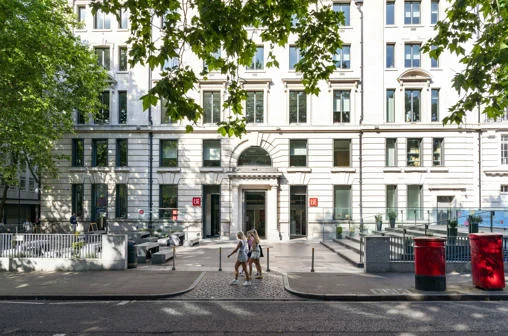Overview
Introduction
How can we reconcile economic development and environmental protection? Is globalisation bad for the environment? Why is it so difficult to address the challenges of sustainable development? These are just some of the tough questions you’ll tackle on this stimulating programme.
You’ll examine the nature, drivers and politics of sustainable and unsustainable development and look at the relationship between environmental change and human wellbeing and development. As you progress, you’ll develop the skills needed for environment and development policy and analysis.
Unlike many university courses, this programme explores these issues from a social sciences as well as a natural sciences perspective. Our teaching team brings together the world’s leading geographers and social scientists, so you’ll learn about environmental issues and sustainable development from many different viewpoints.
Across all years, you’ll have the flexibility to pursue your chosen interests and options. You can also take part in a field trip, usually overseas, in the second year.
Preliminary readings
If you would like to gain further insight into the subject we suggest that you look at one or more of the following books:
- N Castree Making Sense of Nature (Routledge, 2013).
- S Chant and C McIlwaine Geographies of Development in the 21st Century: an introduction to the Global South (Edward Elgar, 2009)
- J Elliot An Introduction to Sustainable Development (4th edition, Routledge, 2012)
- J P Evans Environmental Governance (Routledge, 2012)
- A S Goudie The Human Impact on the Natural World: past, present and future (7th edition, Wiley-Blackwell, 2013)
- N Klein This Changes Everything: capitalism vs. the climate (Simon & Schuster, 2014)
- D Pearce and B Barbier Blueprint for a Sustainable Economy (Earthscan, 2000)
- D Simpson, M Toman and R U Ayres Scarcity and Growth Revisited (Resources for the Future, 2005)
- M Whitehead Environmental Transformations: a geography of the anthropocene (Routledge, 2014)
Entry requirements
Here, you can check our entry requirements for GCSEs, A-levels (please read them alongside our information about subject combinations) and the International Baccalaureate (IB) Diploma. We also consider applications from students with a range of other UK qualifications and from overseas. Please select the overseas button below and choose your country from the dropdown list to find the equivalency to A-levels of your qualification.
We welcome students from all walks of life at LSE. We want to recruit students with the very best academic merit, potential and motivation. So, whatever your background, please do apply. Get all the details on our general entry requirements.
Competition for places at LSE is high. We cannot guarantee you an offer of a place even if you’re predicted or achieve our standard entry requirements.
Our standard offer requirements are intended only as a guide and, in some cases, you’ll be asked for different grades.
Programme content
On this programme, you’ll study 12 units over three years, plus LSE100.
This degree covers natural science concepts on the Environmental Change: Past, Present and Future course. Other environment-related courses build on this understanding of the natural world from a social science perspective. These environment-related courses include some economic analysis, particularly the Applied Environmental Economics course.
Year 1
You’ll take two courses which deal with the natural environment and global issues relating to environmental change and sustainable development, and a course on contemporary geographical issues. The fourth course can be chosen from within or outside the department. Additionally, you’ll take LSE100.
Either a Geography and Environment course or an approved outside option
Year 2
Your second year includes courses on international development, the environment and environmental economics. You’ll also take another course from within or outside the department.
There’s an opportunity to take part in a field trip (normally overseas) on the Field Methods in Geography and Environment course (see the Fees and Funding section for details of costs).
Courses to the value of two units
Year 3
In your final year, you’ll take geography and environment options totalling four units – which can include an independent research project (dissertation).
Geography and environment courses to the value of four units
Why study with us
Discover more about our students and department.
Meet the department
Our department is highly regarded both nationally and internationally – ranked second for Geography in the QS World University Rankings 2025.
Here at LSE, we offer a unique opportunity to study geography in a university with a worldwide reputation in the social sciences. We specialise in economic, urban and development geography, environmental social science and climate change, all with a strong emphasis on real-world applications.
Many of our academics are internationally renowned in their fields. You’ll find a good balance of experienced and younger academics in the department. Within the team, we’ve had three holders of the highly prestigious Philip Leverhulme Prize Fellowships for researchers under the age of 36.
Our research is interdisciplinary and international in its scope and we work closely with academics from several other departments at LSE. Teaching staff are active within the following research centres:
- Cañada Blanch Centre for Contemporary Spanish Studies
- Centre for Climate Change Economics and Policy
- Centre for Economic Performance
- Grantham Research Institute on Climate Change and the Environment
- LSE London
- Middle East Centre
- Saw Swee Hock Southeast Asia Centre
- Transition Pathway Initiative Centre
- What Works Centre for Local Economic Growth
Based in the heart of London opposite Lincoln’s Inn Fields, the department offers a lively, welcoming and supportive community for students and staff.
Learn more about our undergraduate, postgraduate and PhD study opportunities, as well as our research.
Why LSE
University of the Year 2025 and 1st in the UK in 2025 and 2026
Times and The Sunday Times - Good University Guide 2025 and 20261st in London for the 14th year running
The Complete University Guide - University League Tables 20266th in the world for the study of social sciences and management
QS World University Rankings by Subject 20256th in the world for leading the way in social and environmental sustainability
QS World University Rankings: Sustainability 2026Your application
Overview
We consider each application carefully, taking into account all the details you’ve included on your UCAS form, such as:
- academic achievement, including predicted and achieved grades (also see specific information about this programme in the "entry requirements" above)
- subjects and subject combinations (also see specific information about this programme in the "entry requirements" above)
- your personal statement (new guidance for students applying for 2026/27)
- your teacher’s reference
- educational circumstances
You may also have to provide evidence of your English proficiency, although this is not needed at the application stage. See our English language requirements page.
Who attends
We’re looking for students who demonstrate:
- a desire to contribute to the environmental debate
- an interest in the significance and impact of policy at all levels
- an ability to evaluate and challenge conventional views
- logical thinking (to follow complex lines of reasoning and data analysis)
- an ability to think independently and show initiative
- excellent time-management skills
- intellectual curiosity
- self-motivation and a willingness to work hard.
Fees and funding
The table of fees shows the latest tuition fees for all programmes.
You're charged a fee for each year of your programme. Your tuition fee covers registration and examination fees payable to the School, lectures, classes and individual supervision, lectures given at other colleges under intercollegiate arrangements and, under current arrangements, membership of the Students' Union. It doesn't cover living costs or travel or fieldwork.
Home
Home student fee per each year of your programme
This is the 2026/27 tuition fee for Home students. The Home undergraduate fee is charged in line with the maximum fee determined by the UK Government and may increase in subsequent years, in line with government plans.
You should expect to pay a contribution of approximately £500 towards your fieldtrip if you choose the second-year option course Field Methods in Geography. There are fieldtrip bursaries available from the department for students who can document financial need. An alternative field exercise will be undertaken by students who are unable to participate in the above one-week residential fieldtrip.
Overseas
Overseas student fee per each year of your programme
This is the 2026/27 fee for each year of your programme. The Overseas tuition fee will remain at the same amount for each subsequent year of your full-time study regardless of the length of your programme. This information applies to new Overseas undergraduate entrants starting their studies from 2026/27 onwards.
You should expect to pay a contribution of approximately £500 towards your fieldtrip if you choose the second-year option course Field Methods in Geography. There are fieldtrip bursaries available from the Department for students who can document financial need. An alternative field exercise will be undertaken by students who are unable to participate in the above one-week residential fieldtrip.
Learning and assessment
How you learn
How you're assessed
Formative coursework
All taught courses include formative coursework, which is not assessed. This helps prepare you for summative assessment. We use a range of formative assessment methods, such as essays, case studies, reports, quizzes and mock exams. Feedback on coursework is an essential part of the learning experience. Class teachers mark formative coursework and give feedback within two weeks – provided it’s submitted on time.
Summative assessment
This assessment counts towards your final course mark and degree award.
- Summative assessment usually involves examinations for each course at the end of the academic year.
- Environmental courses typically involve a three-hour examination plus an extended essay (or practical work for methods courses).
You’ll receive feedback on summative coursework as part of the assessment for individual courses (except on final submitted dissertations). Feedback is normally provided before the examination period. There are clear guidelines and advice for all assessed assignments.
Please note that assessment on individual courses can change from year to year. You can read more about the current formative coursework and summative assessment for each course in the relevant course guide.
Graduate destinations
Overview
Recent graduates have gone on to work in all areas of environmental policy and economics at the local, national and international level, whether in the public sector for government departments and agencies, in the private sector for industry and environmental/management consultancies, or in the NGO sector for pressure groups and think tanks. A number of recent graduates have also gone on to further study at graduate level.
Further information on graduate destinations for this programme
Median salary of our undergraduate students 15 months after graduating:
Top 5 sectors our students work in:
Career support
From CV workshops through to careers fairs, LSE offers lots of information and support to help you make that all-important step from education into work.
Many of the UK’s top employers give careers presentations at the School during the year and there are numerous workshops covering topics such as job hunting, managing interviews, writing a cover letter and using LinkedIn.
See LSE Careers for further details.
Discover Uni
Every undergraduate programme of more than one year duration will have Discover Uni data. The data allows you to compare information about individual programmes at different higher education institutions.
Programmes offered by different institutions with similar names can vary quite significantly. We recommend researching the programmes you're interested in and taking into account the programme structure, teaching and assessment methods, and support services available.

